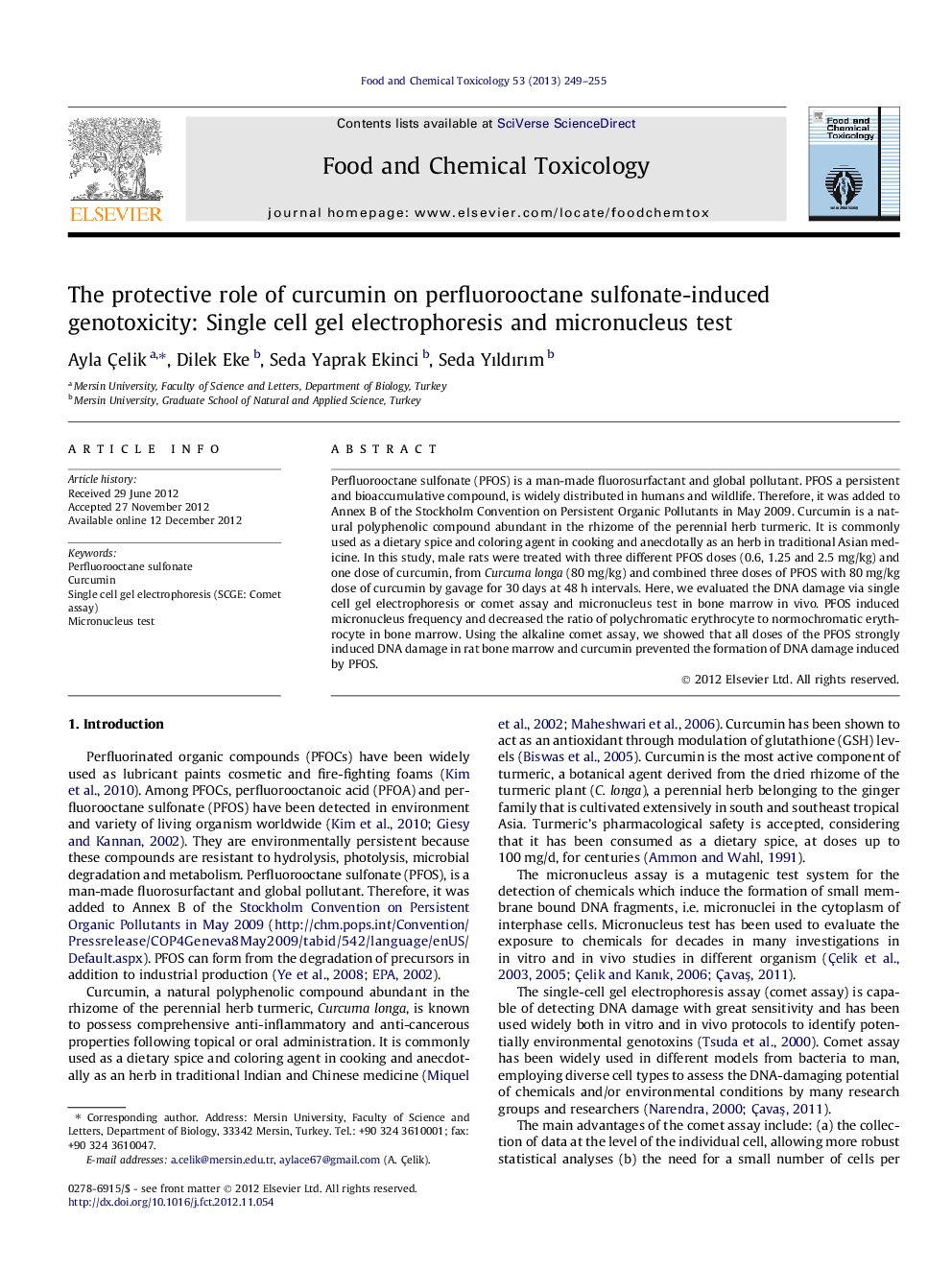| Article ID | Journal | Published Year | Pages | File Type |
|---|---|---|---|---|
| 5851366 | Food and Chemical Toxicology | 2013 | 7 Pages |
Perfluorooctane sulfonate (PFOS) is a man-made fluorosurfactant and global pollutant. PFOS a persistent and bioaccumulative compound, is widely distributed in humans and wildlife. Therefore, it was added to Annex B of the Stockholm Convention on Persistent Organic Pollutants in May 2009. Curcumin is a natural polyphenolic compound abundant in the rhizome of the perennial herb turmeric. It is commonly used as a dietary spice and coloring agent in cooking and anecdotally as an herb in traditional Asian medicine. In this study, male rats were treated with three different PFOS doses (0.6, 1.25 and 2.5Â mg/kg) and one dose of curcumin, from Curcuma longa (80Â mg/kg) and combined three doses of PFOS with 80Â mg/kg dose of curcumin by gavage for 30Â days at 48Â h intervals. Here, we evaluated the DNA damage via single cell gel electrophoresis or comet assay and micronucleus test in bone marrow in vivo. PFOS induced micronucleus frequency and decreased the ratio of polychromatic erythrocyte to normochromatic erythrocyte in bone marrow. Using the alkaline comet assay, we showed that all doses of the PFOS strongly induced DNA damage in rat bone marrow and curcumin prevented the formation of DNA damage induced by PFOS.
⺠PFOS having a potential genotoxic character caused significant DNA damage in bone marrow tissue of male rats. ⺠DNA damage induced by curcumin is at lower level than induced by control. ⺠Curcumin reduces PFOS-induced DNA damage in Wistar rat bone marrow cells under the present experimental conditions.
